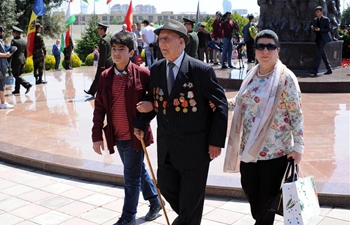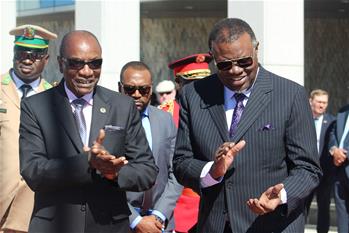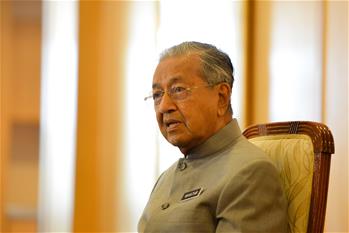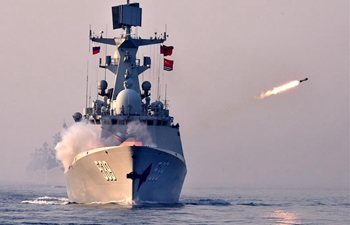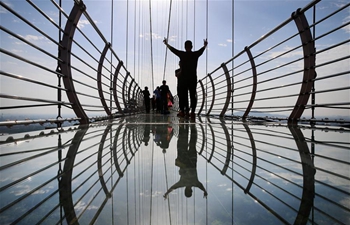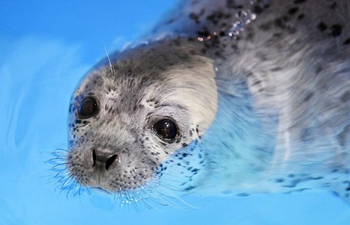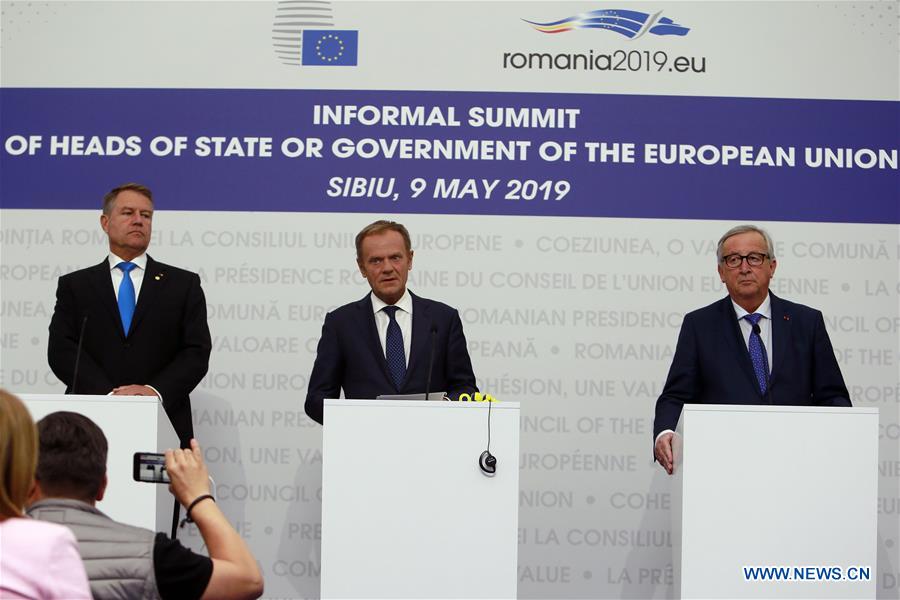
Romanian President Klaus Iohannis (L), European Council President Donald Tusk (C) and European Commission President Jean-Claude Juncker attend a joint press conference of an EU informal summit in Sibiu, Romania, May 9, 2019. European Council President Donald Tusk announced late Thursday that he would convene a meeting with the leaders of the European Union (EU) member states on May 28 to establish procedures for appointing new EU leadership. (Xinhua/Cristian Cristel)
BUCHAREST, May 9 (Xinhua) -- European Council President Donald Tusk announced late Thursday that he would convene a meeting with the leaders of the European Union (EU) member states on May 28 to establish procedures for appointing new EU leadership.
"I would like to announce that, immediately after the European Parliament elections, on 28 May I will convene a meeting of all the 28 leaders to start the nomination process for new leadership," he told a joint press conference at the end of the informal EU summit in Sibiu, Romania, held together with European Commission President Jean-Claude Juncker and Romanian President Klaus Iohannis.
"My intention is to carry out the election of heads of EU institutions in a swift, smooth and effective manner," Tusk said, adding that the nominations will have to reflect the geographical and demographic balance, "so that both large and smaller countries are represented at the highest levels in the EU."
If there is no consensus in the decisions, Tusk said he will not hesitate to put them to the vote.
"We want to make these nominations at the European Council in June," Tusk said.
The European Parliament will hold elections between May 23 and 26, the 9th parliamentary election since the first direct elections in 1979. A total of 751 members of the European Parliament currently represent over 512 million people from 28 member states.
The elections are only part of a bigger EU changeover, as by the end of the year, the EU should also have new presidents to lead the European Commission and European Council, two appointments that will also sway how Europe works over the next five years.
